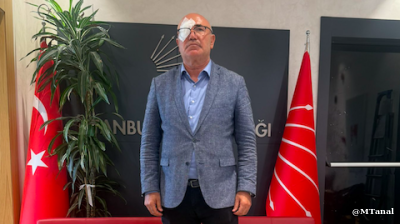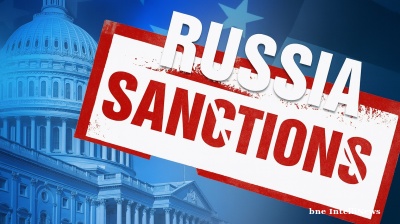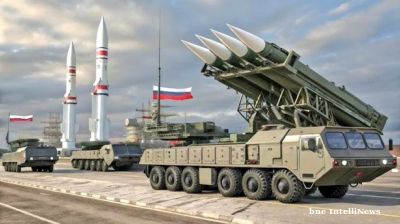Ukraine’s war with Russia increasingly looks like it is lost. Ukraine is losing ground in the battle with Russia, albeit slowly. At the same time, the formal negotiations on the first cluster in Kyiv’s EU accession bid were supposed to start on July 18, but that failed to happen. However, since Ukrainian President Volodymyr Zelenskiy signed a law that defangs Ukraine’s anti-corruption reforms it now looks unlikely the process will be restarted.
Ukraine’s situation has rapidly decayed in just the last week. It now appears that Zelenskiy has given up on any hope of joining the EU anytime soon and has refocused on consolidating his control over domestic politics. At the same time, the European Nato-pays for Ukraine weapons “big announcement” from July 14 is also rapidly unravelling, leaving Ukraine without the weapons it desperately needs, especially air defence ammo. And the Armed Forces of Ukraine (AFU) has recently suffered a string of setbacks on the battlefield that bode ill for the rest of the summer’s campaign.
AFU losing ground
The Armed Forces of Russia (AFR) retook full control of the Luhansk region for the first time since the start of the war on July 1, and at the weekend, as yet unconfirmed reports say that Pokrovsk fell to Russian forces on July 22, a key logistical hub that supplies the AFU’s entire eastern front line.
Ukraine has fought heroically for the last three years, surprising everyone by holding off the bigger and more powerful AFR against all odds.
But despite Trump’s efforts to broker a peace, the ceasefire talks are dead. At the third Istanbul meeting on July 23, nothing of significance was discussed, let alone agreed.
“The Russian-Ukrainian talks in Istanbul predictably ended with nothing but another prisoner exchange. The Ukrainians again proposed a meeting between Zelenskiy and Putin, Trump and Erdogan, but in response they got the predictable answer: first, they need to agree on all contentious issues, and the meeting of the leaders will be a formality for signing the treaty,” The Bell commented in a note. “Meanwhile, Donald Trump's announced plan to rearm Ukraine is falling apart at the seams – its only understandable part, the delivery of Patriot air defence systems to Kyiv, will not take place before the spring of 2026.”
Ukraine continues to suffer from a chronic shortage of men, money and materiel. As the war drags into its fourth year, the tide is turning inexorably against Kyiv as heroism and innovation give way to the simple equation of who has more men and the greater industrial production capability. Ukraine loses to Russia on both counts. It was Russia and America’s ability to out-produce Germany and make more planes, tanks and bullets – the famous lend-lease programme – to defeat the Nazis that eventually proved decisive in WWII. Putin put the entire Russian economy on a war footing in the first year of the war and is now reaping the dividends. The EU has only just started talking about making those investments with European Commission President Ursula von der Leyen's ReArm speech (video) on March 4, after it became clear the Trump administration would close the US security umbrella that Europe has sheltered under since the start of the Cold War. Moreover, the European defence sector is suffering from decades of woeful under-investment and is in no position to replace the US held, as was described in detail in the Draghi report.
Russia is being fully supported by its allies; Ukraine is not. A reported 28 containers of arms and ammo arrived in Moscow last week from North Korea, and a new decoy drone has reportedly appeared on the battlefield this month that is made entirely out of Chinese components. The Russian Ministry of Defence just released video of a drone factory that is entirely based on upgraded Iranian technology. Russia will soon be in a position where it can launch 2,000 Shahed explosive drones a day, according to German intelligence, up from the 750 it current uses.
As bne IntelliNews has been reporting for the last three years, despite the outbreak of the largest war since WWII in its backyard, the EU has persistently refused to sign off on the defence sector procurement contracts needed for private-sector arms-makers to upgrade their factories, and is now scrambling to expand production. For example, the Franco-British power Storm Shadow missiles Ukraine has been using went out of production 15 years ago and manufacture will only be restarted sometime later this autumn.
Ukraine has been holding its own in the drone war that started in early 2023, but it has lost the missile war before it started in May. Russia now produces some 1,200 missiles a year, whereas Ukraine makes only a handful. That makes Kyiv entirely dependent on its Western allies for things such as the Patriot air defence, which is the only weapon it has that can bring Russian missiles down, but with US President Donald Trump’s exit Ukraine becomes defenceless. Even if the US fully equipped Ukraine with all the Patriot batteries it wants – and Trump has made it clear he will not send any US Patriot batteries to Ukraine – then US weapons manufacturer Lockheed Martin only makes some 600-650 Patriot interceptor rockets a year, less than half the number of missiles Russia can fire.
Increasingly, Ukraine’s allies are admitting the only effective countermeasure to Russia’s growing arsenal of missiles is to strike launch sites and production facilities deep inside Russian territory with Nato-supplied long-range missiles – something that the West has repeated ruled out for fear of provoking a direct clash between Russia and Nato.
EU bid looks dead
The EU was due to open the first cluster to formal EU accession negotiations at the end of last week on July 18, but in a long interview with European Pravda, then EU Accession envoy Olha Stefanishyna admitted that “multiple” countries – not just Hungary – had concerns about Ukraine’s commitment and the talks did not begin.
Stefanishyna told European Pravda, that the EU is “not currently prepared to take the decisions” Ukraine expects, and she was reassigned the same day and became the special envoy to Washington.
Ukraine’s EU accession bid has now stalled, and it suddenly became a lot more uncertain if it will ever be restarted after Zelenskiy pushed through and signed into law the highly controversial Law 12414 on July 22 that guts Ukraine’s anti-corruption reforms.
Zelenskiy immediate faced a backlash from his EU partners. There was a mild rebuke in a joint statement from G7 ambassadors in the first hours saying they were “closely following” the situation. But within 48 hours those comments became rapidly more strident.
“As a corrupt country Ukraine will not make it into the EU,” Polish Foreign Minister Radoslaw Sikorski said on July 24. "The fastest way for Ukraine to lose the support of both the EU member states and the public in the member states is to go back to the bad old days of corruption.”
Analysts have pointed out that reassigning Stefanishyna, who has been talking to Brussels for more than five years, at this crucial point in the EU talks will only undermine Brussel’s confidence further and suggests that Bankova (Ukraine’s equivalent of the Kremlin) has given up for now on beginning formal talks about becoming a member of the EU.
Protests in Kyiv and other cites immediately broke out (video) following the passage of Law 12414, even before Zelenskiy had signed the bill into law later the same day. By the second day the protest crowd swelled forcing Zelenskiy to start looking for compromises.
On July 23, the president suggested new legislation to defuse the rapidly escalating tensions between the government and the citizens. He gave the heads of law enforcement and anti-corruption agencies two weeks to prepare the necessary legislative changes to “optimise work without duplicating functions,” according to Ukrainian Interior Minister Ihor Klymenko.
"The President gave us two weeks for meetings, for negotiations ... so that in two weeks we could come to him and say how we will work. What changes are needed so that everyone can work without duplicating functions," Klymenko said at a meeting with journalists on July 24. However, few believe at this point Zelenskiy will back down and cancel Law 12414.
While most of the attention has been focused on how the new law will defang Ukraine’s anti-corruption bodies, the more worrying aspect of the law is it concentrates all law enforcement power in the hands of the president alone. As some commentators are anticipating a Ukrainian military defeat in the near term, they speculate that Zelenskiy is gathering more threads of power to himself to cope with the inevitable public backlash if he sues for peace.
“Have we woken up in a police state today?” asked Ihor Zhdanov, the former Minister of Youth, in an editorial posted by Interfax on July 23.
“The adoption of yesterday's law is not just a restriction on the independence of the National Anti-Corruption Bureau (NABU) and the Specialised Anti-Corruption Prosecutor's Office (SAPO). The matter is much more serious,” he said. “Today, the "presidential power pool" already includes the Prosecutor General's Office, the State Bureau of Investigation, the Security Service of Ukraine and the National Police. NABU, SAPO and Bureau of Economic Security (BES), with no director appointed yet, are on the way.”
“In other words, all the country's security forces are already under the control of the head of state, who is also the Supreme Commander-in-Chief under martial law. Don't you think, gentlemen, that we have already woken up in a police state?” said Zhdanov.
Georgia and Hungary
Zelenskiy’s decision to concentrate all policing power in his own hands with Law 12414 is seen as a red line for the EU. Brussels was reportedly already having doubts about Ukraine’s bid before the law, but its rushed adoption is a red line for Brussels. Like Georgia’s adoption of the so-called Kremlin-inspired “foreign agents” law that sparked mass protests in March, Ukraine’s Law 12414 will certainly stop the EU accession process, as it has done with Georgia, nominally another EU candidate, and could even bring down sanctions on Kyiv.
The practical upshot of the clash is that Moldova’s bid to join the EU, which was granted candidate status at the same time as Ukraine in June 2022, will now be decoupled in order not to penalise Chisinau which remains on course to meet Brussels demands.
However, both Georgia and Ukraine’s visa-free deals with the EU, one of the most valued wins from the EU accession process, are not thought to be in danger for the moment, say analysts. Visa-free status is Brussels’ trump card in any future negotiations, as it allows European diplomats to threaten the two governments with direct pressure from their own populations if Brussels threatens to rescind the right of unfettered entry to the EU. EU foreign policy chief and former Estonian Prime Minister Kaja Kallas has already threatened to play this card in Georgia’s case.
European Pravda reports that there were secret negotiations between Kyiv and Brussels in the run-up to the July 18 cluster negotiation deadline.
The European Commission had been grappling with Hungarian Prime Minister Viktor Orban’s veto of Ukraine’s accession bid, but was slow to realise that whereas Orban had used his power to block the process as leverage to extort concessions from Brussels over issues like access to Russian oil exports, his position has hardened significantly more recently.
Having dominated Hungarian politics for a decade, Orban’s Fidesz party is now trailing in the polls to the opposition Tisza Party and its leader Peter Magyar, a former Fidesz insider who has become a prominent critic of Orbán’s government ahead of the crucial 2026 general election. Orban has built his opposition to Ukraine’s accession to the EU into the heart of his re-election campaign, and so is unlikely to make any concessions at all.
That has proved to be a huge problem for Kallas and the other EU leaders that were keen to bring Ukraine into the EU as fast as possible. The accession process is usually long and arduous, often taking a decade to complete, but the EC has made numerous concessions to accelerate Ukraine’s bid that could have been completed by 2030, according to European Commissioner for Enlargement Marta Kos when she spoke only last week.
Not anymore. Kallas came up with a Plan B that boiled down to starting the negotiation process without Budapest’s approval, as under the EU Treaty a unanimous vote is not needed to open negotiations on the six chapters, only to close them. However, European Pravda reports that several members were nervous about this approach, as it is legally questionable. Budapest would almost certainly sue the commission – and most likely win – but that process would take at least three years, with a good chance of Orban no longer being in power.
Her alternative plan, to strip Hungary of its voting rights under Article 7 of the EU treaty, is even more legally dubious and if successful would have the side-effect of undermining the entire EU structure, which is founded on unanimous agreements amongst member states.
As bne IntelliNews has reported, the EU is already in danger of falling apart thanks to the combined pressure of the polycrisis and the war in Ukraine, but if Ukraine now drops out, Europe’s prestige will only be further damaged and the fissures will widen further. Last year the EU acted in concert with the US to oppose Russia; this year it has been reduced to the “E3” – the UK, France and Germany – leading the drive to support Ukraine and the US has taken itself out of the game completely.
All these problems were already undermined the attempt to start EU accession negotiations, before Zelenskiy’s Law 12414. According to European Pravda, after the June 18 deadline passed, Bankova seems to have made a decision to give up on the process, which would have taken a decade anyway, and focus on Ukraine’s domestic politics and on lobbying the White House instead.
That partly inspired last week’s Cabinet reshuffle, which as bne IntelliNews reported, downgraded the EU accession drive and refocused Bankova’s diplomatic efforts on bring Washington back to Kyiv’s side. Stefanishyna, one of Bankova’s most experienced diplomats, was appointed a special envoy to Washington and the new Prime Minister Yuliia Svyrydenko is both a Zelenskiy-loyalist and also well-known in Washington, where she successfully brokered the difficult minerals deal with Trump administration that was signed on April 30.
Banking on Trump to come to the rescue looks like a very risky strategy, but Zelenskiy is rapidly running out of other options.
Opinion

BEYOND THE BOSPOROS: Ozel, the opposition “genius” who keeps playing right into Erdogan’s hands
CHP leader can call congresses, “move the HQ” and appeal to the courts all he likes. There’s just one problem – there is no law in Turkey.

COMMENT: Putin’s pivot to China cements Russia’s vassalage to Beijing
When Donald Trump declared that Joe Biden had made the “unthinkable” mistake of pushing Moscow into Beijing’s arms, the US president suggested their partnership was inherently fragile.

ING: Czech industry joins the growth pack
Industrial output accelerated in July, beating market expectations. Robust gains were recorded in key segments of manufacturing, suggesting the onset of a broad-based recovery.

COMMENT: Potential sanctions on Russian oil keeps price outlook uncertain
The ongoing Ukraine war ceasefire talks and the potential for new and even more extreme sanctions on Russian oil exports is keeping the outlook for the price of oil uncertain, Oxford Economics said in a note.


